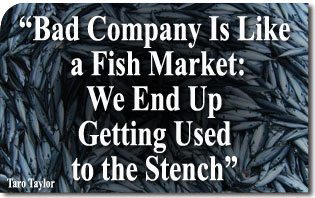 The Asia-Pacific Economic Cooperation (APEC) summit held in China in early November had an unexpected side effect, at least for those who do not usually follow Chinese developments.
The Asia-Pacific Economic Cooperation (APEC) summit held in China in early November had an unexpected side effect, at least for those who do not usually follow Chinese developments.
Though having just bombastically signed with the United States a commitment to reduce greenhouse gas emissions, China made clear it will only abide by what it wants.
At the APEC meeting China showed how it understands environmental agreements. During the meeting, it took drastic and indispensable measures to pretend that it cares about the environment more than socialist hegemony.
The Paris newspaper Le Monde reported that factories in Tangshan reduced their pace. At the capital, vehicles would circulate in rotation and exceptional anti-pollution measures were applied. Schools were closed, hospital services reduced, and cremation in cemeteries banned.
It was a whole “war effort” aimed to impress visitors.
Tangshan, one of the country’s great cities with 7.5 million inhabitants, is located in Hebei province, which surrounds Beijing.
It plays a prominent role in this kind of collective poisoning caused by pollution from industries built with deplorable socialist technology.
Tangshan produces the same amount of steel as the U.S., but if it were to meet the pollution targets as set on paper it would have to reduce its production by half.
However, in order to reduce air pollution in Beijing, the city agreed to decrease its output of fine particles called PM 2.5. by 25%. To do this, it needs to reduce coal consumption for power generation by 60 million tons.
While a dozen old boilers were dynamited, the theatrical nature of the scene became obvious during a laughable self-criticism session by provincial Communist Party leaders in the presence of President Xi Jinping.
The “repentant” leaders apologized for having sacrificed “quality development” in order to stimulate “growth at any cost.”
The scene was a hoax since the dynamited boilers had been out of use for a long time, according to a local inhabitant of Wangsijiang on the outskirts of Tangshan.
Less than one hundred yards from the destroyed boilers, two huge chimneys continue belching a gray smoke that reaches neighboring villages. The smoke has led to the spread of cancer among residents and the sinking of the soil because of coal mines. The polluting factories enrich the local Communist Party.
Tangshan Steel, a subsidiary of Hebei Steel — China’s main steelmaker and the world’s third largest — is watched closely. Anti-pollution measures were announced, but the inspectors that should put them in practice never show up.
The war on pollution in Tangshan has long been waged with tragicomic theatrics. In 2004, the Deputy Minister of the Environment, Pan Yue, nicknamed “Hurricane Pan,” wrote stinging reports about the situation there.
In 2007, those reports resulted in Beijing calling for implausible reductions in production. The reductions did not happen and the pollution has not stopped growing ever since.
In recent years, the decline in global economic activity has helped reduce emissions, and the Chinese government ordered the 308 heads of steel mills to reduce air poisoning or close their facilities.
For Song Guojun, director of the Institute for Environmental Policy at Renmin University in Beijing, the goals pursued are so confusing that no one did anything to apply them.
Without clear rules, the war on pollution is doomed to failure even before it begins. The Chinese Communist Party seems to be preaching to the people the old saying, “bad company is like a fish market; we end up by getting used to the stench.”
China has a socialist ideological goal of global supremacy. As far as China is concerned, everything that serves this stinking imperialist goal is justified.
